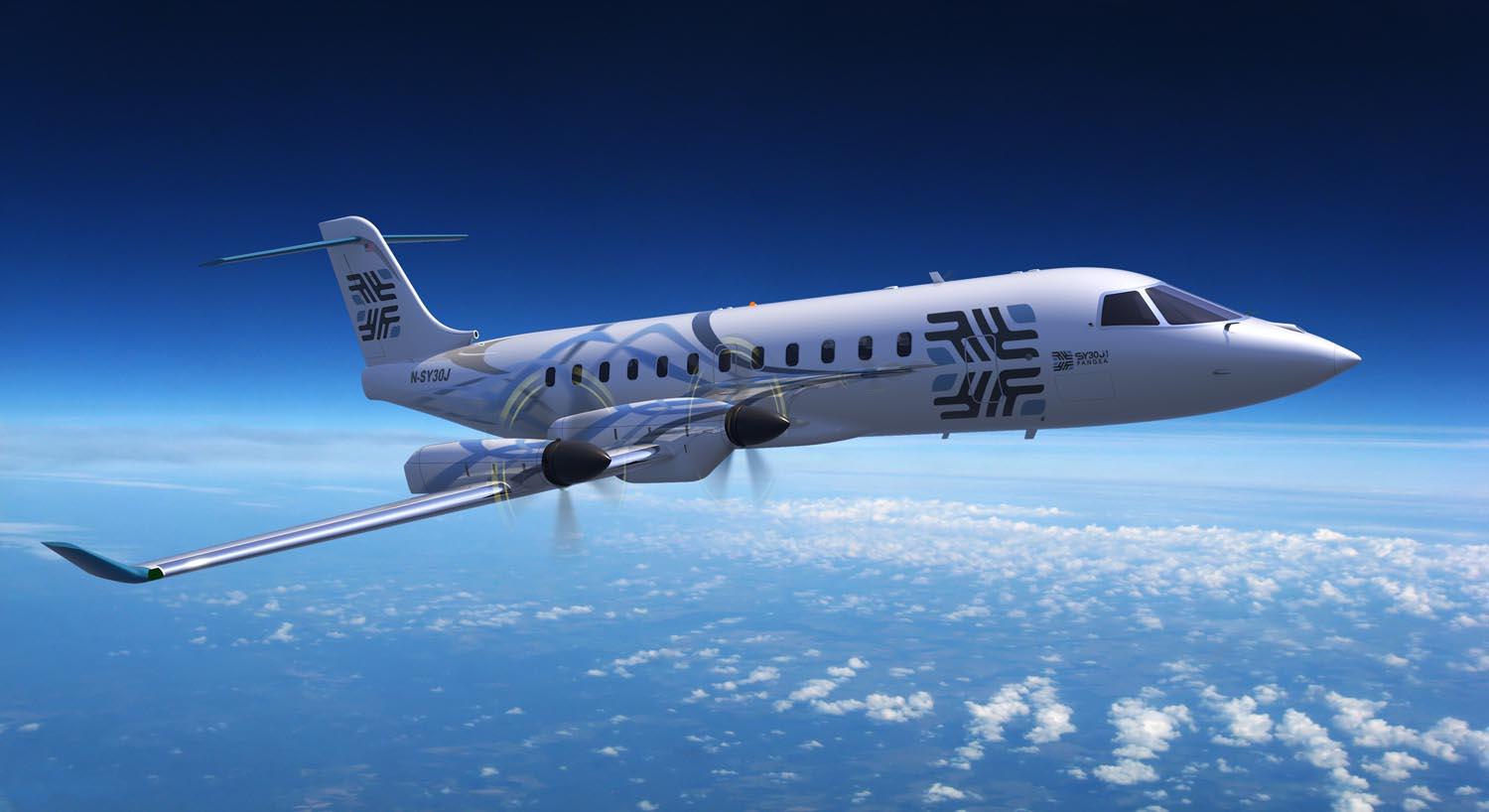
LE BOURGET—Despite the energy storage limitations of batteries, more startups are at the Paris Air Show this year presenting their plans to develop electric regional aircraft.
French startup Aura Aero announced additional customers here for its planned 19-seat hybrid-electric ERA, Netherlands-based Maeve Aerospace debuted its 44-seat, all-electric Maeve-01 and Wichita-based The AirCraft Company joined the fray with its 30-seat, hybrid-electric SJ30Y Pangea.
They are part of a growing roster of electric regional aircraft startups that range from UK/Dutch Electron Aircraft with the four-passenger Electron 5 and Germany’s Vaeridion with the nine-seat Microliner to Sweden’s Heart Aerospace with the 30-seat hybrid-electric ES-30.
At the show, Toulouse-based Aura Aero signed a memorandum of understanding with a Philippine regional airline for three ERAs, designed to carry 19 passengers or 1,900 kg (4,200 lb.) of cargo up to 1,600 km (995 mi.). Malta-based private aviation provider Elit’Avia increased its existing letter of intent by eight aircraft to 28.
Having completed conceptual design of the Maeve-01, the Dutch startup has selected Siemens’ Xcelerator portfolio to develop a digital twin of the aircraft for the next stage of the program in which the company plans to build a full-scale powertrain demonstrator, from battery pack to electric motor.
Aiming for service entry by 2030, the startup plans to run the full-scale powertrain by mid-2024, co-founder Joost Dieben says. In December Maeve was selected to receive a potential €17.5 million ($19.1 million) from the European Innovation Council and is now working to raise the required matching funds.
The startup’s projection of a 460 km range for the Maeve-01 is based on using batteries with an energy density of 500 Wh/kg, compared with at best 300 Wh/kg for lithium-ion today. The company is working with silicon-anode battery maker Amprius, which has announced it is developing a 500 Wh/kg cell.
Wichita-based The AirCraft Company is aiming for a 2029 entry into service for its planned SY30J Pangea. The startup is targeting a 400-km all-electric range on batteries with a pack-level energy density of 350 Wh/kg. A range extender will increase this to 800 km, CEO Mario Asselin says.
Uniquely, the SY30J is designed around the larger size of U.S. passengers, with 20-in.-wide seats, co-CEO Sylvie St-Georges says. The cabin is also designed to ease access for passengers with reduced mobility, with a first seat row, wider aisle and a lavatory that can accommodate a wheelchair.
The AirCraft Company is a subsidiary of Asselin, a Wichita-based aviation services company. The company has self-funded work on the Pangea so far, completed conceptual design and is beginning supplier selection, Asselin says. Both he and St-Georges are former Bombardier engineers.
